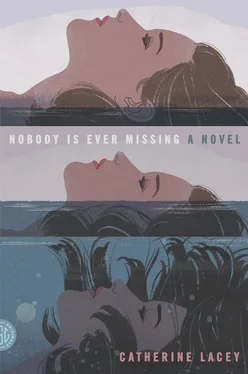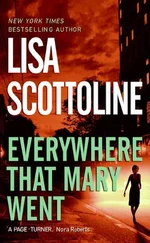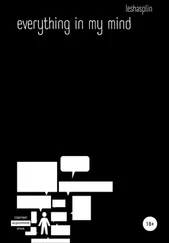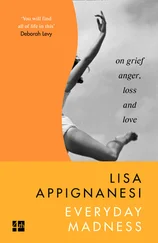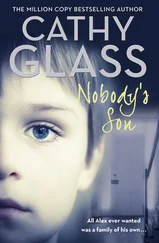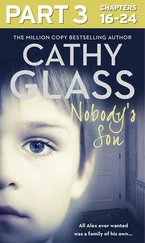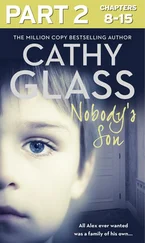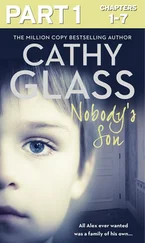A week or so later, a group of people showed up and they all wore similar linen tunics and much of their hair was growing in wads. They put their hands together and bowed a good deal. None of them seemed to own or wear shoes. I almost wanted to know more about them, how they all met, why they seemed to have a uniform, what they had against shoes, but the desire to know more was overridden by the knowledge that to get that information I would have to actually speak with them a substantial amount and that they might have questions about me and that it might be difficult to extract myself from such a situation.
I was making dinner for the group one night (I had been demoted to the most domestic jobs, which I always did alone) when Amos came in to wash his hands.
Your family must be—
No family. I don’t have a family.
Amos nodded. I knew there must have been a point in his life when he would have said the same thing, that he had no family, even though I knew Amos had probably made this new family with Luna to overshadow the one he had come from and knowing how to lie in the same way gave us a common truth. There was a pause here of about three seconds, then Amos turned on the faucet to wash his hands. There was another pause of about four seconds, then I went back to chopping carrots.
You’re chopping too quickly , he said, no reason to rush the knife.
The knife is fine.
Aye, the knife is fine, it’s your hands that need the minding.
The what?
The minding.
There was a pause of maybe one second. Amos started to reexplain, but I cut him off.
Oh, the minding. To mind my hands. Okay.
This kept happening, this thing where I didn’t know what a person speaking in English was saying. It felt rude to keep asking what someone said only to figure it out and repeat the word back in my accent but I didn’t know another way to deal with this problem, so this was how I dealt with it.
Sorry , I said.
Amos left to deal with one of the animals so I finished chopping the carrots without any damage to any part of my hand or self, then I chopped the broccoli and peppers and potatoes and put oil and salt on the chopped vegetables and put them in the oven and waited awhile, then took them out, but the problem with this was I wasn’t minding the oven like Amos had said I should do— Mind the oven , he said, it’s shit —and I agreed now, it was shit, because it had blackened one corner of the pan of vegetables; but I had been thinking about my husband and how we would likely, very likely, almost certainly, practically absolutely, not see each other for a long time or ever and even if we did it would never be the same and so, in this way, we were both dead to each other, alive only in shape-shifting memory, but dead in every other way. And because I was still thinking about my half-dead husband as I took the half-burned vegetables out of the oven, I just scraped them all into a big bowl instead of taking the burned ones out first because I was trying to count how many days it had been since my husband and I had died to each other instead of looking at the charcoaled broccoli and carrots and realizing they weren’t the kind of thing that people liked to eat. I tried to pick the burned ones from the bowl but I didn’t get many of them because I didn’t make much of an effort, and even though I was taking the burned ones out because they weren’t edible, I ate them because, at the moment, I thought it would be better if everyone learned to consume their own mistakes.
I want to watch that video you showed me once of the twin babies saying the same syllable to each other over and over and over. I want to watch that because we both know that’s all life is, really, that’s all it is. We’re all twins and clones and remakes of each other; we’re all pairs unpaired; we’re all speaking the same repeated syllable at each other and why is it that I have to go running off into a twinless solitude? What is inside this solitude but me, saying the same syllable to myself over and over and over, trying to make sense of it, trying to rearrange it. Husband, if I was actually speaking to you I’d tell you about the baby Grand Emperor penguin who swam two thousand miles accidentally and ended up on a beach near Wellington, a long accident, a wrong turn. They said he ate sand and driftwood, for lack of knowing what to eat, where he was, what he needed, why he’d swum two thousand miles away from the other penguins, but I’m still wondering about the months he spent swimming alone. Maybe sharks swam past him. Maybe schools of tiny white fish nipped at his feet, grew disinterested, swam on. Maybe grey whales rose beneath his tininess, a single bulging whale eye as large as his head as he swam through the blue daytime ocean and the navy storming ocean and the cold black ocean under a moon or a half-moon or no moon at all, and each night above him a different moon was there, and the moon’s slow wink was all for him, for his solitude, for his perseverance, for the constant plane of water, water, water, and no one who loved him and nothing he knew and no others to swim with at all. What was he but a pair unpaired, living away from the other penguins’ cold huddle? Enough with my ridiculous metaphor. Maybe it is time for me to be clear, or let me be clearer than I have yet been: I didn’t leave you to become someone else’s something, someone else’s twin to talk to, someone else’s clone to mirror, someone else’s anything. It was not that kind of leaving. I am not that kind of gone. I am gone but not so gone that there is no possibility of me coming back, though maybe I have gone out far enough now that you are preparing for a future without this particular wife — so, Husband, if this is so, please keep in mind you are still legally obligated to me, written like a law into my life, and we cannot remove ourselves from each other so easily, with such impulse, or, at least, this is somewhat true. I, you should know, left without a particular reason, though I may have a few nonparticular reasons — unnamable feelings and unnamable secrets and un-understandable feelings, feelings about secrets and feelings about facts and feelings about feelings, and since they are all un-understandable can we call them derstandable feelings? Why was it that we grew to derstand each other? Where did that derstanding come from and why couldn’t we pry ourselves away from it and why were we never together anymore, just alone in each other’s vicinity? And is there any possibility that we could become, again, the kind of people who have a future instead of just a past and could we reach some kind of clearing in that future, some grassy patch of many-years-from-now where we are just fine being just fine? Maybe we could decide to get a dog or a child or just a good bottle of wine and maybe we’ll sit at a sidewalk café, sipping it, sipping our lack of responsibilities, watching mothers bumble by lugging their children and babies and unhelpful dogs, all the weight and moan of their decisions hanging on them and asking, always asking for more, to be fed, to be watched, to be loved, and if we must be either children people or dog people, I will say that it makes me feel the least unwell to believe that we could become dog people, not children people, in that distant patch of grassy future. Because I believe we can follow the simple repeated emotion of a dog, the predictable needs of a dog, the gentle forgetfulness of a dog — and you may have wanted children in the past and I may have wanted to want children in the past and maybe you only wanted to want but disguised that wanting to want as simple wanting, and perhaps I just wanted children but couldn’t manage to admit it as anything other than a wanting of a want because I feared the burden of a plain want, the frightening possibility of a desire, of a desire that would not necessarily be met or the possibility of that desire being met unpeacefully — but no matter now, that was some fork in the hypothetical road we didn’t take and now we can stay here in this unwanting, this past-our-timeness, this future and its disintegrating idea of the past. I am still sometimes hopeful that I could someday try to generate a desire to raise a dog, to meet the repeated needs of a dog, the simple dogness of dogs, all the qualities of dogs that they do not share with babies, those pre-people people and all their warm, slimy wanting and their embarrassingly exaggerated needs, their screaming red-faced hunger and their bloody-murder nap-needing, and how those needs are just the same as ours, only magnified and reflected back at us — and do you know what? Some people are not the kind of people who can stand those kinds of things, magnified and reflected things, warm, slimy, needing tiny-people things. Some people just prefer dogs. Husband, I know as well as you that all my metaphors have turned bizarre, but what I need to say is there is a future and I am in it. There may be a tomorrow when I might come home and maybe it won’t be too late for me to become the kind of woman who doesn’t feel her life is irrevocably complicated, and maybe I can slowly forget what happened to my brain, where it went and why I couldn’t find it and why you couldn’t find it either. But if I never come home, Husband, please know I still have many of the same senses of belonging to you. I still have a little ring around my brain like a diamond one or a Saturn one or the kind that bathwater leaves. I am asking you, I know, to suffer, to stand very still and feel as little as possible.
Читать дальше
